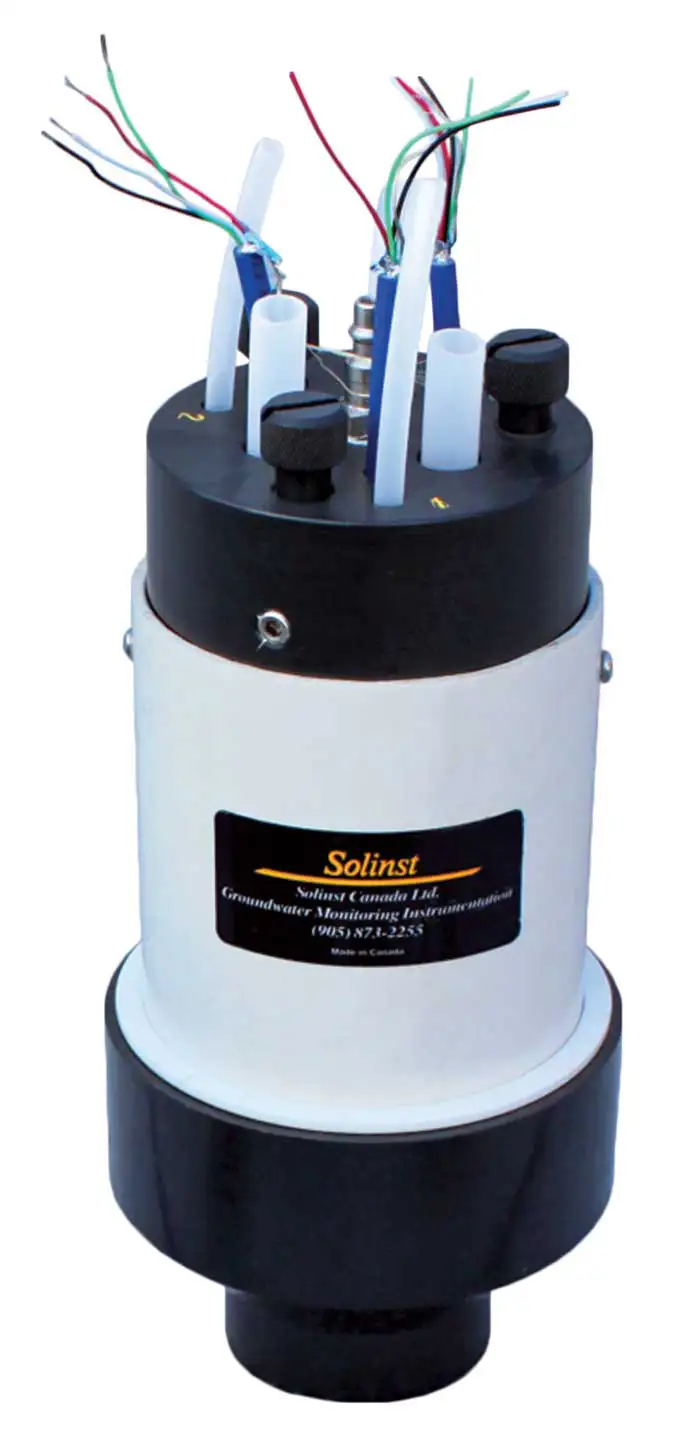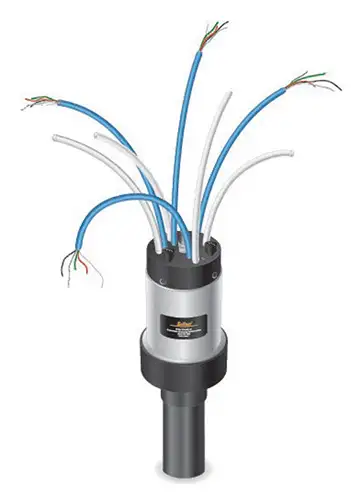Sampling Ports and Manifolds
Depth Discrete Groundwater Monitoring
Reduce Costs and Field Time
The Waterloo System Design Explained
The Waterloo System uses modular components which form a sealed casing string of various casing lengths, packers, ports, a base plug and a surface manifold. This allows accurate placement of ports at precise monitoring zones.
Monitoring tubes attached to the stem of each port individually connect that monitoring zone to the surface. The standard system is built on 2″ (50 mm) Sch. 80 PVC to fit 3″- 4″ (75 – 100 mm) boreholes and uses 3 ft (915 mm) long packers. Stainless steel components and various diameters of monitoring tubing are available
Modular Sealing Joints**
The slip-on joint design of the Waterloo System uses a nylon shear wire and a double o-ring seal. This gives reliable, leakproof joints so that the core of the Waterloo casing string is isolated from external formation waters. Groundwater is only accessible via the port stems and attached monitoring equipment. This water-tight seal also prevents contact between packer inflation water inside the casing and the formation water outside the casing.

O-Ring Joints with Shear Wire

Multi-Purge Manifold Wellhead
Customized Wellhead Manifolds
The manifold completes the system at surface. It organizes, identifies, and coordinates the tubes and/or cables from each monitoring zone.
The manifold allows connection to each dedicated transducer in turn, and a simple, one-step connection for operation of pumps. When dedicated pumps are selected, a unique wellhead allows individual zones to be purged separately, or purging of many zones simultaneously to reduce field times.

Multi-Purge
Manifold Wellhead

Dedicated
Sampling Pump
and Transducer

Permanent
Waterloo Packer

2″ PVC
Casing & Plug
** US Patent 5,255,945
